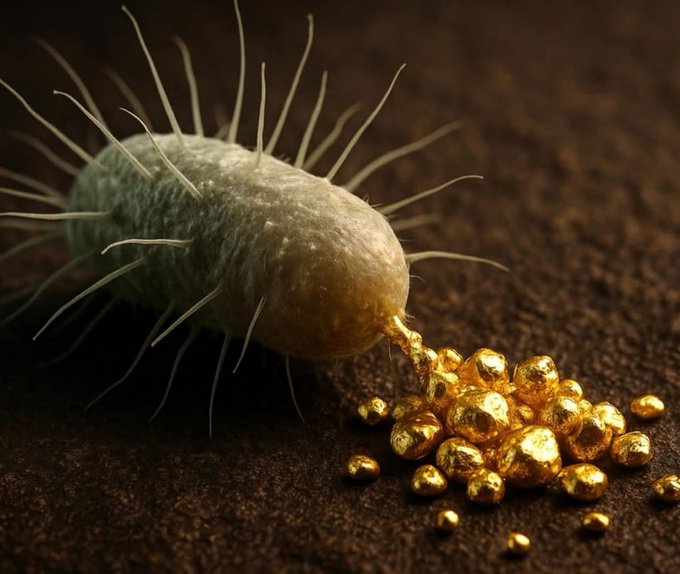In a fascinating twist of nature, a bacterium known as Cupriavidus metallidurans has the unique ability to turn toxic gold compounds into tiny gold nuggets. Through a natural process called biomineralization, this microscopic organism effectively detoxifies its surroundings by producing gold nanoparticles—essentially “pooping” gold.
How It Works:
Thriving in Harsh Environments
Cupriavidus metallidurans thrives in metal-rich, often toxic environments—places where most life struggles to survive. It can process heavy metals like gold, copper, and cadmium without being harmed.
Detoxifying Through Biomineralization
When exposed to these toxic metals, the bacterium uses biochemical pathways to neutralize them. In the case of gold, it transforms harmful gold compounds into inert, solid particles.
Gold Nanoparticles as a Byproduct
The result? Tiny gold particles—nanoparticles—are excreted as waste. While invisible to the naked eye, these nanoscale nuggets are pure gold.
Why It Matters:
Eco-Friendly Gold Recovery
This bacterium could help revolutionize how we reclaim gold from electronic waste, offering a cleaner, more sustainable method of recovery.
Microbial Mining (Biomining)
Instead of traditional, environmentally destructive mining methods, we could one day “farm” gold using microbes—offering a greener path to gold extraction.
Advancing Nanotechnology
Gold nanoparticles have numerous applications in electronics, medicine, and materials science. Harnessing this bacterium could provide a natural and scalable way to produce them.
From Factory Floors to the Lab
Originally discovered in 1976 at a metal processing facility in Belgium, Cupriavidus metallidurans remained a scientific curiosity until 2009, when researchers uncovered its remarkable gold-producing capabilities.
At The GoldCompany, we’re fascinated by innovations that merge science and sustainability. Could this humble microbe help shape the future of gold?


Comments are closed